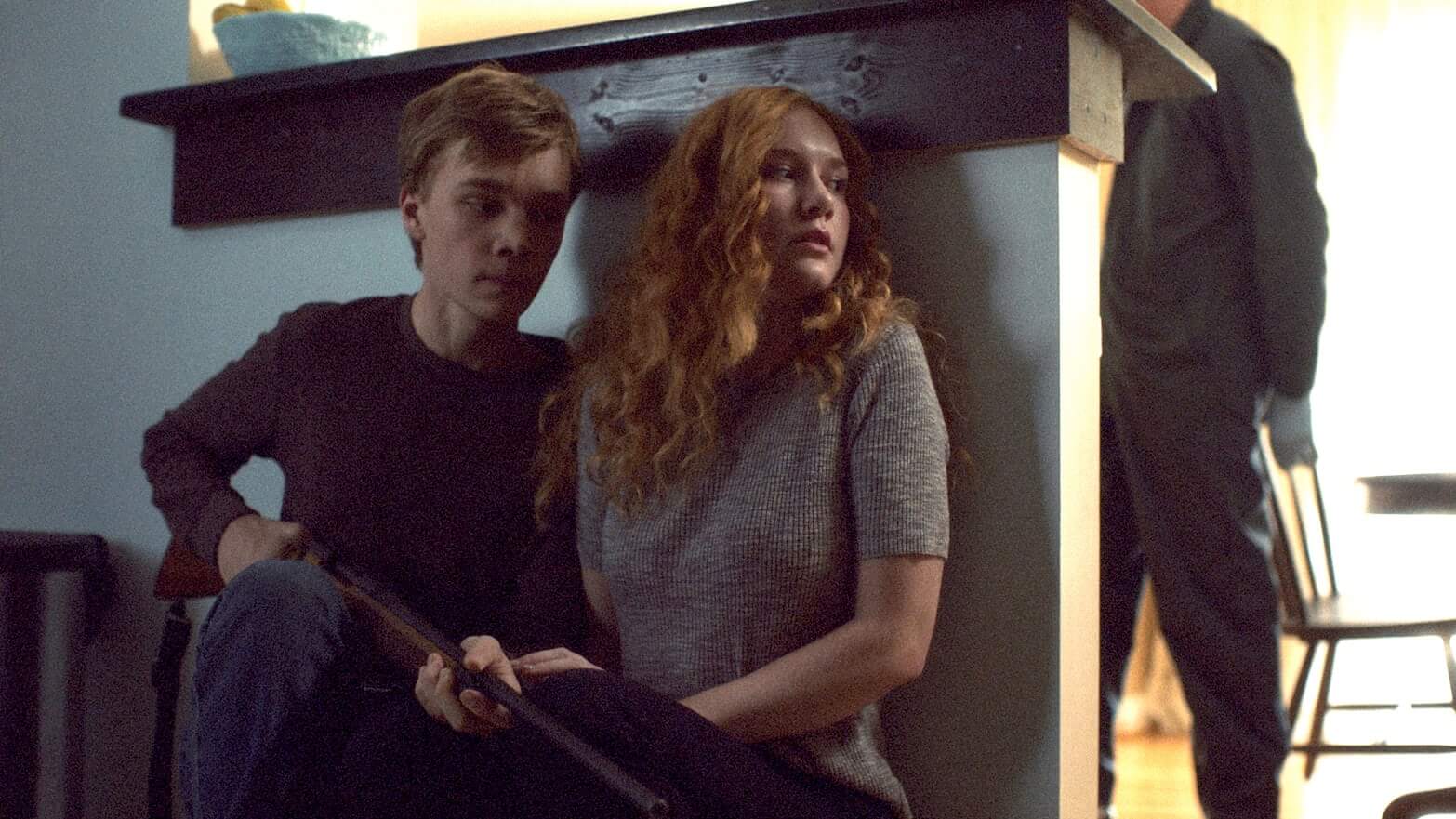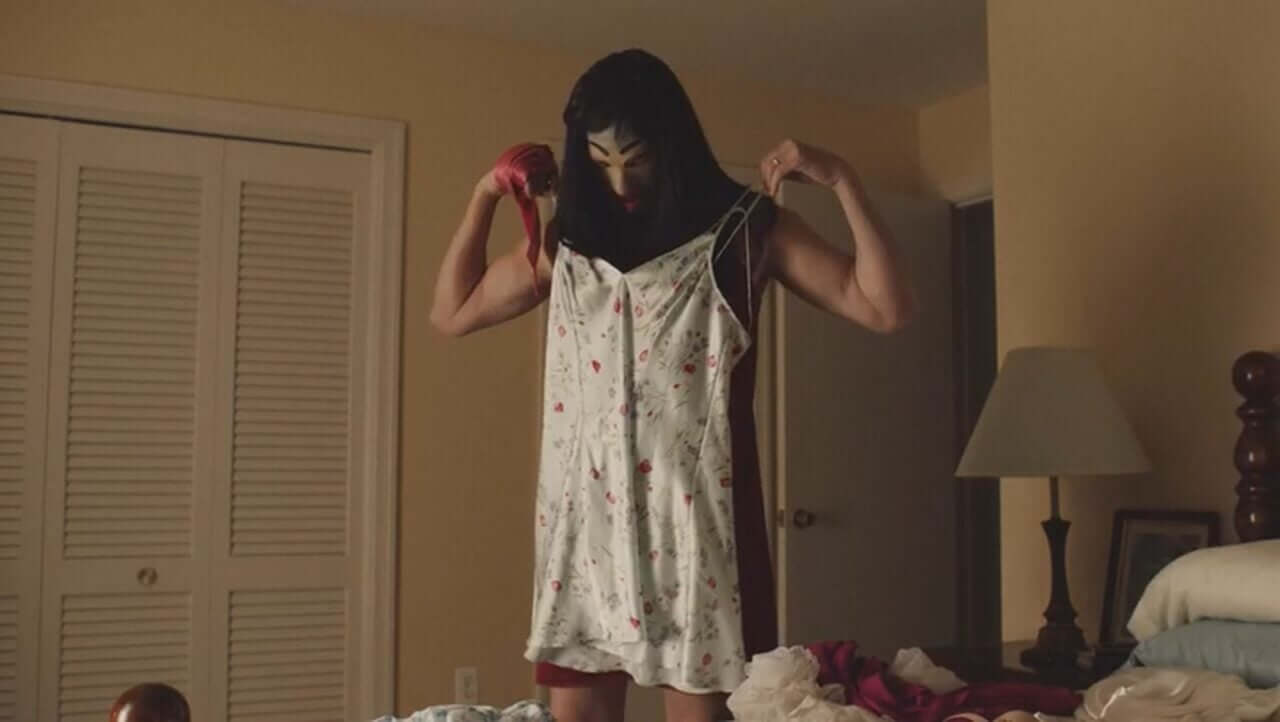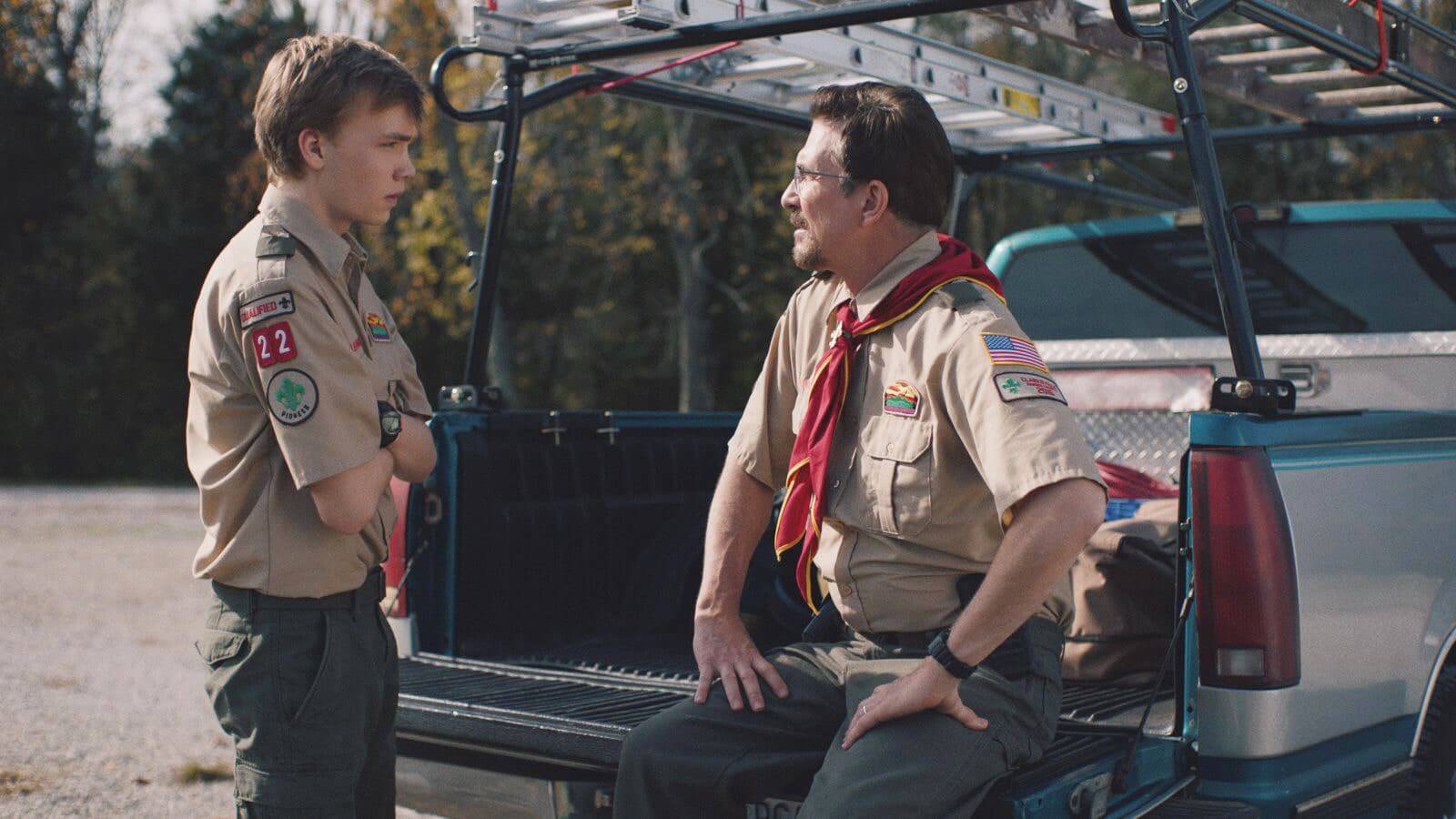The Clovehitch Killer. Family bonds, or the story of a neighbourhood butcher

The main issue I had with evaluating The Clovehitch Killer was the fact that it’s a theatrical movie. Well, you see… as an ordinary TV viewer, something to watch in the evening, on the couch in the living room – it fulfills most of my requirements. However, if I had to pay for a movie theater ticket, I would unfortunately be disappointed. Very much so. Because for a theatrical film – it’s rather poorly done. But I’ll overlook that for the sake of this review, let’s agree to treat this film as a ‘TV movie’
SPOILERS!
The Clovehitch Killer, directed by Duncan Skiles, is yet another tale of a serial killer from a proper, family-oriented, Catholic, American home. The story is told from the perspective of his son, Tyler (Charlie Plummer). And though, of course, not everything is explicitly revealed from the very beginning, I believe the audience will quickly figure out who the serial killer mentioned in the first minutes of the film is, a killer who ended his activities a decade ago. But let’s go step by step: we have the pleasure of getting to know Tyler’s ideal, loving, rule-abiding, and God-fearing family: his devout and disciplined mother, Cindy (Samantha Mathis), his paralyzed uncle Rudy (Mark Nash), his little sister Sussie (Brenna Sherman), and his stepfather Don (Dylan McDermott), who also acts as his surrogate father. The director doesn’t waste time with unnecessary prolonging – the action in his film unfolds right from the start – when Tyler steals his father’s car to spend time with his girlfriend, she finds a photograph of a tied-up woman between the seats.
As easy to predict, she accuses Tyler and, as befits a typical teenager, spreads the word among friends. From then on, Tyler is, colloquially speaking, in trouble at school. And since Skiles, or perhaps the screenwriter (Christopher Ford), doesn’t shy away from embracing stereotypes, a red-haired outsider appears in Tyler’s surroundings, also a victim of gossip, rejected by peers, Kassi (Madisen Beaty). However, before that, Tyler decides to invade his father’s privacy and breaks into the shed, which only Don had access to. It’s probably not surprising to anyone that his father hides his secrets there, consisting of BDSM-themed pornographic writings for bondage and gag enthusiasts, as well as another photograph of a tied-up woman. When Don finds out about his son’s transgression, he invites him for a man-to-man talk about sex, impure thoughts, and growing up. He clumsily takes on the role of someone uncomfortable with the topic, yet simultaneously an understanding and laid-back father.
Tyler and Kassie start working together, and their common goal is to find out who the infamous knot-tying killer from 10 years ago is and whether he is indeed the perfect and devout scout leader, Tyler’s father. The discovery of the mysterious box in the shed is not the end of it. It turns out that Don has a separate room where similar items abound, and among the illustrations depicting “torture” tools or binding methods, there are also personal pieces of evidence belonging to his victims. The answer to the question of whether Don is the knot-tying killer becomes obvious. But is it really that simple? The director, to my dissatisfaction, avoids showing even the slightest hint of brutality and violence (well, maybe a little towards the end), and instead, through the character of Don, engages in a cat-and-mouse game with us. Because Don is a master of manipulation. The tricks he employs not only confuse Tyler’s mind but also play with the minds of the audience.

Don discovers once again that his son has invaded his privacy. He takes him on a father-son trip for hunting. In this scene, we encounter a technique often used but still quite interesting and appropriate in terms of camera movement. Don follows his son with a firearm, and in the foreground, we see a close-up of the shotgun. This effect intensifies the tension that we feel: will he shoot his son or not? At this point, most viewers no longer have doubts – Don is the infamous killer. But there’s a surprise here too. The hunting scene suddenly turns into a conversation where Don reveals the truth to his son. It’s Uncle Rudy who is the killer. It’s difficult to judge definitively whether, at this moment, Tyler doubts what he has pieced together logically in his head for so many days, or on the contrary, he realizes perfectly that his father is lying, but he’s too shy to say anything. And along with Tyler, the viewer also doubts. Once again, the director uses his tactic – because on Don’s face, forced by his son to burn all the evidence, a hint of regret and contemplation emerges – does he feel that he’s losing something of great value to him? By the way, this is a very short but incredibly significant, albeit inconspicuous scene.
Returning to the investigation that Tyler and the somewhat obsessed Kassie are conducting at the same time, it’s no wonder that Kassie, invited to a family dinner at Tyler’s, starts questioning Don about the Scouts and how he’s knowledgeable about knot-tying. Skipping less essential threads, we come to a point in the film where Tyler goes to camp, and his mother and sister, persuaded by Don, go to visit their grandmother for a rest. Don is left alone, and finally, what we’ve been waiting for happens – he reveals his true nature. And no, viewers won’t find plot twists in this film. Don disguises himself as a woman, wears a mask, and starts strangling. Clearly, autoerotic asphyxiation brings him more pleasure than the mundane sex with his wife they engaged in the previous evening. And let me jump back a little in time, to a moment when Don sneaks into a woman’s house, lies to her, claiming he’s a bandit who robbed a bank and is seeking shelter, and then ties her up and begins to strangle her. As we can see, according to Don, strangling is even more enjoyable when done to someone else rather than oneself (we won’t discuss tastes in this matter here). And constant strangulation of a victim and teetering on the edge of life and death seem to give him more satisfaction than plain murder.

Unexpectedly joyous antics of Don are interrupted by Tyler and Kassie. A dispute ensues between father and son, in which Don resorts once again to manipulation, trying to convince Tyler that the woman is his lover and that what they are witnessing are just innocent adult pranks. Don, unusually calm for the situation, transforms in a second, throwing Don’s friend against the wall. The exemplary father, scout leader, and member of the local church suddenly reveals the face of an enraged aggressor. The conflict that occurs in this scene between father and son, their mutual relationship, indifference, irritation, and finally Don’s outburst of anger, along with Tyler’s ineptitude, boyish weakness, and helplessness – so different from his father – are incredibly significant scenes in the entire film. One might fault Skiles for creating a somewhat dull, overly polite, and correct film, but one cannot accuse him of not giving the viewers anything in return. The truth is, the modern audience seeks bloodshed, nudity, and fast action in cinema.

And it might be quite surprising because it’s no secret that the inspiration behind the creation of the character Don was none other than one of the most famous and elusive serial killers – Dennis Rader, self-named B.T.K (Bind, Torture, Kill). Skiles could have easily made a film dripping with violence, nudity, and perversion. However, he didn’t choose to go down that path. Was this decision correct? I find myself surprised, but yes. Although this film has its flaws and certainly won’t meet the expectations of viewers who love fast-paced action, it’s not a shallow or superficial film. It’s a treat for fans of psychological cinema. There are no complaints to be had about young Charlie Plummer or the experienced Dylan McDermott. Both handled their roles superbly. Plummer – embodying the role of a confused, quiet, torn son of a likely serial killer. Meanwhile, McDermott portrayed a perverse, brutal serial killer who appears as the perfect husband and father on a daily basis.
What’s the conclusion? While the film wasn’t outstanding or perfect, I don’t consider the time I spent watching it as wasted. Sometimes, it’s worth giving up fast-paced action cinema for a slightly lighter psychological film. Oh, and one more plus: The Clovehitch Killer can also inspire you to explore the incredibly intriguing case of the elusive, one of the most notorious serial killers – Dennis Rader.



